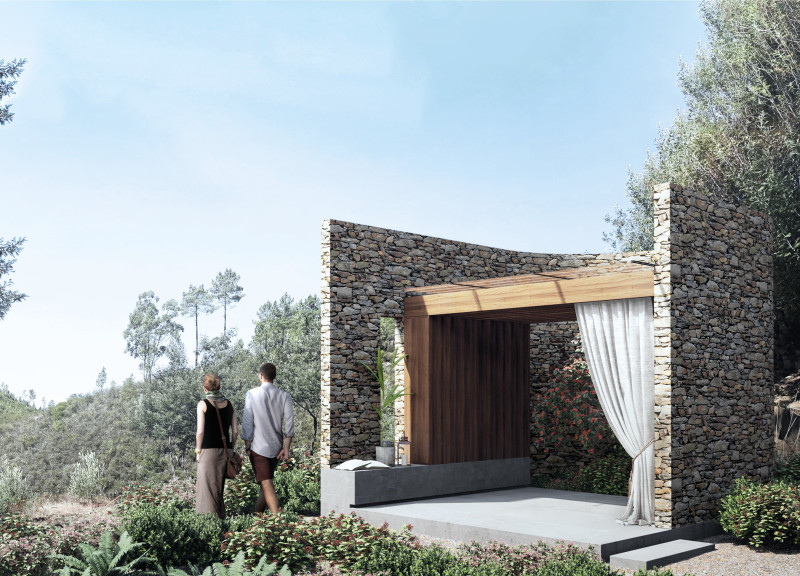5 key facts about this project
The design of the cabin offers a thoughtful connection to its natural surroundings, situated on a stone terrace that gives views of the valley. It serves as a peaceful retreat, created to promote contemplation and personal reflection. The cabin is meant to feel like it naturally grows from the earth, blending harmoniously with its environment and evoking a sense of tranquility.
Form and Acoustic Design
The cabin features a curved shape that symbolizes harmony and infinity. This design choice not only adds to its visual appeal but also impacts the internal sound environment. The outer shell of the cabin captures and redirects sounds—like the rustling leaves and the songs of birds—bringing the outside world directly into the living space. This creates a heightened awareness of nature for the occupants.
Spatial Orientation
The cabin’s layout draws attention to two key areas: the wide external landscape and a carefully designed interior garden. This arrangement invites moments of self-reflection, allowing occupants to explore both their surroundings and their inner thoughts. The design maintains a clear visual connection to the valley while fostering a sense of intimacy through the presence of the garden.
Sustainability and Resource Management
The cabin uses traditional building methods and local materials to reduce its environmental impact. Stone, wood, and concrete form the primary construction elements, decreasing the carbon footprint associated with transport and manufacturing. Additionally, a rainwater collection system filters and stores water for use within the cabin, ensuring a sustainable water supply while allowing gray water to return to the landscape.
Climate Control and Comfort
The design incorporates passive strategies that enhance comfort within the cabin. Its rounded shape promotes airflow, allowing for effective ventilation that helps regulate indoor temperatures. The thermal mass of the stone walls contributes to energy efficiency, reducing heat loss during colder months.
The cabin features a low wall that encircles the interior garden, blending with its overall design. This wall invites nature inside while creating a gentle boundary, enhancing the sensation of a cozy space without closing it off from the outside.





















































